Amnesty Warns About Imminent Execution Of 22-Year-Old Iranian Youth
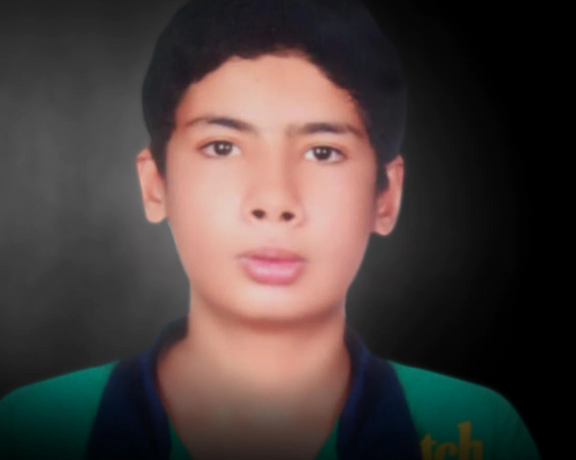
Amnesty International warned about the imminent execution of an Iranian youth in relation to a crime that took place when he was just 17 years old.

Amnesty International warned about the imminent execution of an Iranian youth in relation to a crime that took place when he was just 17 years old.
The international rights group said Wednesday that Hossein Shahbazi's trial was grossly unfair and his torture-tainted "confessions" were used against him.
“Iranian authorities have scheduled his execution for Sunday May 28, in violation of the absolute prohibition on the use of the death penalty against people who were children [under 18] at the time of the offence for which they have been convicted,” stated Amnesty.
His four previously scheduled executions were postponed following public outcries.
Hossein Shahbazi was arrested in December 2018 and held at a detention facility run by the investigation unit of Iran's police (Agahi) in Shiraz for eleven days without access to a lawyer or family.
During this time, interrogators tortured him and treated him terribly. After an unfair trial in Fars province in which his forced "confessions" were used as evidence against him, a criminal court convicted him of murder and sentenced him to death on 13 January 2020.
His conviction was upheld by the Supreme Court on 16 June 2020 and his request for a judicial review of his case in 2021 was rejected by the Supreme Court.
Amnesty urged Iran to immediately halt the scheduled execution of Hossein Shahbazi, quash both his conviction and death sentence, and grant him a fair retrial in full compliance with international law and the principles of juvenile justice, excluding coerced “confessions”, and without resorting to the death penalty.
Amid mounting criticism from global leaders and rights activists, Iran continues its execution spree, hanging over 110 people in the last month
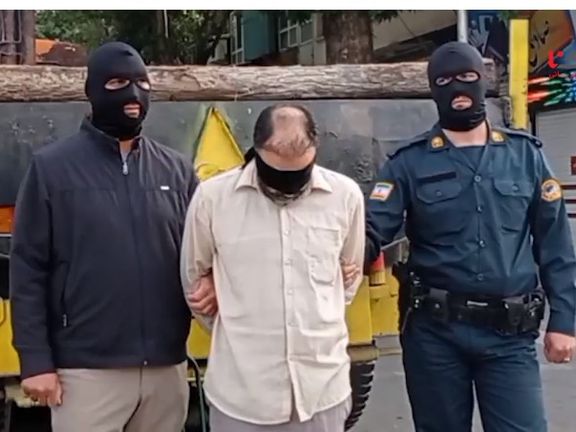
Despite mounting criticism from global leaders and rights activists, Iran executed seven more people on drugs and murder charges Thursday.
Human rights sources reported that Mohammad Daraie, Mehdi Salari, Majid Jafari, Ali Tayyeb, Ali Piri, Qaderbakhsh Dehani, and Abdol-Rasool Jamshidi were executed in Jiroft, Isfahan, Kerman, and Urmia prisons in the early hours of Thursday.
The number of executions has exceeded 110 in the last month.
Meanwhile, the Center for Human Rights in Iran (CHRI) called on world leaders to increase pressure on the Iranian regime to end the flagrantly unlawful executions of protesters and others that are on the rise.
“The Islamic Republic is hanging young protesters—after torturing them into making 'confessions' and convicting them in sham trials—and targeting minorities for executions for lesser crimes, in order to cow its restive population into silence,” said the group in a letter delivered to 75 governments around the world on Wednesday.
“Unless world leaders join forces to raise the cost to the authorities in Iran of these state-sanctioned killings, which severely violate international laws governing the death penalty, the Islamic Republic’s killing machine will gather steam and more people will unjustly die on the gallows in Iran,” said Hadi Ghaemi, CHRI Executive Director.
Over 500 protesters, including 71 children, have been killed by state security forces since the death in custody of Mahsa Amini in September. Untold others have been maimed and blinded, 22,000 people have been arrested, and raped, and many have been tortured. A UN expert on Iran has described these atrocities as crimes against humanity.
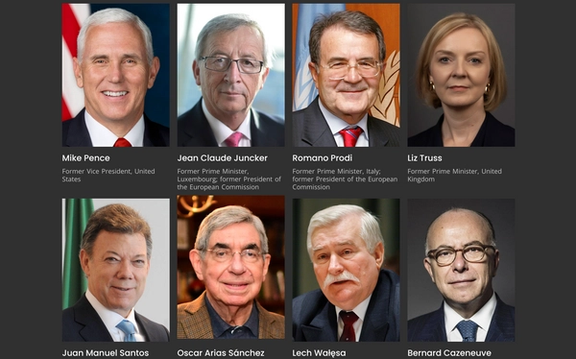
A group of 109 former world leaders have sent a joint open letter to world powers urging support for the uprising taking place in Iran, days after the regime executed three protesters.
Signatories include 50 former Presidents, 48 former Prime Ministers, one former Chancellor, and nine other former Heads of State from across the world, including
former UK Prime Minister Liz Truss, former US Vice President Mike Pence and former Presidents of the European Commission, Jean-Claude Juncker and Romano Prodi.
The group also calls for the designation of the IRGC, a bone of contention in countries including the UK where MPs are split, several still hoping for a revival of nuclear talks.
Organized by the group Justice for the Victims of the 1988 Massacre in Iran (JVMI), the open letter called on world leaders to “stand in solidarity with the people of Iran in their desire for a secular and democratic republic where no individual, regardless of religion or birthright, has any privilege over others”.
They stressed that “the Iranian people have made it clear that they reject all forms of dictatorship, be it that of the deposed Shah or the current theocratic regime, and thus reject any association with either. We believe it is for the Iranian people to decide their future.”
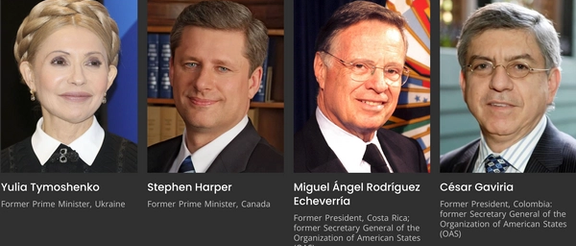
The group also urged the international community to recognise the four decades of campaigning from the democratic coalition National Council of Resistance of Iran (NCRI), rallying support for the Ten-Point Plan proposed by the NCRI President, Maryam Rajavi.
The open letter calls for a system in which free elections, freedom of assembly and expression, abolition of the death penalty, gender equality, separation of religion and state, autonomy for Iran’s ethnicities, and a non-nuclear Iran, can allow Iranians to live in peace and prosperity.
Highlighting the crackdown on the recent protests which started in September following the death in morality police custody of Mahsa Amini and has led to the death of hundreds of protesters and the arrest of tens of thousands, the former world leaders reiterated that the international community has a “responsibility” to support the Iranian people’s human rights.
“Decades of apparent silence and inaction by the international community have helped fuel a culture of impunity in Iran. Since the 1980s, the authorities in Iran have executed tens of thousands of protesters and political prisoners,” wrote the leaders. “Tragically, in the summer of 1988 alone, over 30,000 political prisoners – the vast majority of whom were members of the opposition MEK – were brutally massacred,” referring to one of the worst humanitarian disasters to hit the country since the founding of the Islamic Republic.
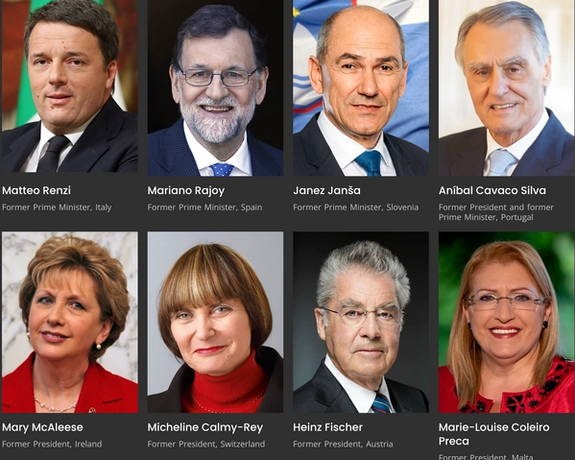
The signatories condemned the Iranian regime’s meddling in the Middle East and Europe, including its provision of drones to assist Russia’s war against Ukraine and its terrorist attempts and cyber-attacks in Albania.
“We urge your nations to stand with the Iranian people in their quest for change and to take decisive steps against the current regime. This includes blacklisting the Revolutionary Guards (IRGC) and holding regime officials accountable for their crimes against humanity,” the letter added.
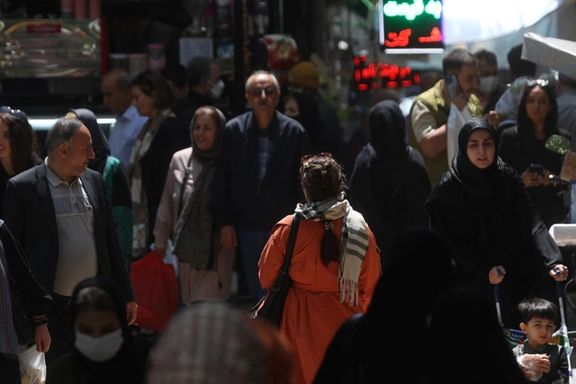
Hardliners in Iran have strongly criticized a government hijab bill and claimed its leniency would only encourage further defiance of hijab rules.
Minister of Justice Amin Hossein-Rahimi said Monday that the government modified and approved the double-urgency bill proposed by the judiciary and would present it to the parliament within the next few days.
The bill is apparently more lenient than a motion by some ultra-hardliner lawmakers in March which has yet not been put to debate in the parliament. The motion proposed a fine of up to $60,000 for unveiling in public.
Iran’s Judiciary operates under the supervision of Supreme Leader Ali Khamenei and their input into the new bill means it must have had his support.
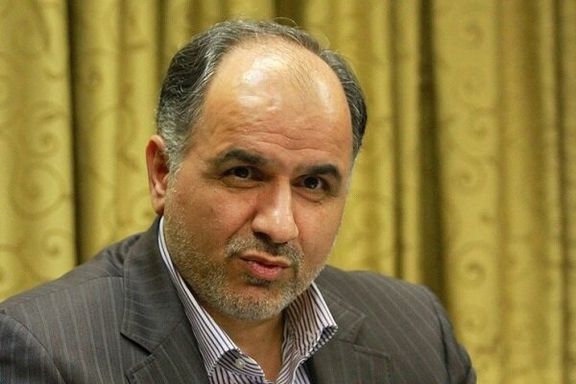
However, politics is more enigmatic in Iran than appearances usually indicate. Firebrand Hossein Shariatmadari, the editor of the flagship hardliner newspaper -- which is funded by the Supreme Leader -- strongly criticized the new bill on Sunday for “reducing punishments in the laws of the country for removing hijab into [small] cash fines.”
“A look at the content of the bill and comparison with the existing laws suggests that the bill has been prepared with the (maybe unintentional) aim of removing the existing legal obstacles [against unveiling] and preparing the ground for the spread of this nasty and abominable phenomenon rather than taking action against unveiling,” he wrote.
Shariatmadari also claimed that some of the women who were arrested for flouting the hijab on the streets have confessed that they were paid $3 per hour, presumably by the enemies of the Islamic Republic.
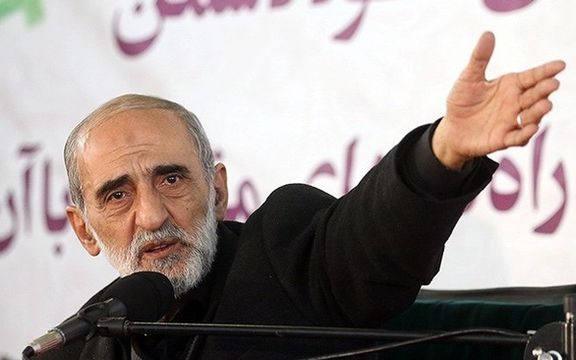
Tehran Municipality’s Hamshahri newspaper, a once reformist daily which has become ultra-conservative since hardliners took over the city council and in 2021, has also urged the government of President Ebrahim Raisi to revoke the bill.
The newspaper argued that if turned into law it would tie the hands of the police and other hijab enforcers such as civilians who practice ‘amr-e be marouf’, that is, calling others to enjoin what is good and forbid them from doing what is wrong.
‘Amr-e be marouf’ by vigilantes has caused quite a few disputes and even scuffles in public over veiling between its proponents and women who are now defiantly appearing unveiled.
In April, a 59-year-old woman died of cardiac arrest in hospital in Kerman after a fight broke out when Revolutionary Guards (IRGC) affiliated Basij militia members who assaulted her family over hijab. Apparently, the Basij members ordered a member of the woman’s family to cover her hair, leading to an argument and a scuffle.
A video that became viral on social media in mid-April showed a young woman having a panic attack at a shopping arcade in Babol in northern Iran. The incident happened as a fight broke out when Basij militia tried to arrest some shopkeepers over hijab and fired their guns into the air during the scuffle.
In the past two months hardliners have intensified their efforts to enforce veiling laws more forcefully to put a stop to women’s increasing defiance of the compulsory hijab. Since popular protests after Mahsa Amini died at the hands of the morality police last September, many women walk in the streets without hijab.
Many, even some women who wear the hijab by choice, are against government interference in the matter which they think should be a personal choice.
“Better just say they should put a machine gun at the Revolution Square and kill those with inadequate hijab one by one,” Hossein Ghadiani, a former Kayhan journalist who has become critical of hardliners, told Shariatmadari in an audio file posted on Telegram post Tuesday. “What is it exactly that will satisfy you? Throwing 85 percent of the people in the sea to drown?”
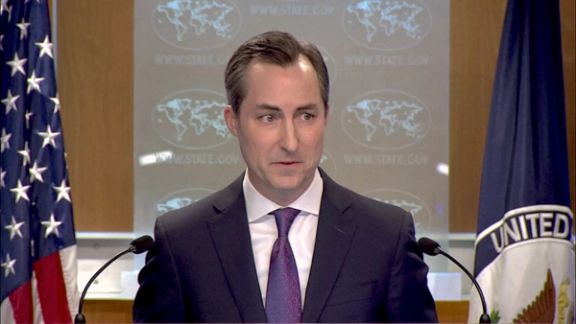
The US has rejected any ties to the two journalists detained in Iran for breaking the news on how Mahsa Amini was killed in police custody.
During a briefing on Tuesday, State Department Spokesperson Matthew Miller said that over the course of the protests that engulfed Iran after the death of the 22-year-old Iranian-Kurd, the regime's authorities have repeatedly violated human rights, punishing people for executing their essential freedoms including protesters and journalists. (sorry but this quote was horrible - nothing to do with you.)
Niloufar Hamedi and Elaheh Mohammadi, the two journalists arrested for publicizing the death of Mahsa Amini, will stand trial as of May 29, according to the Judiciary Spokesman Masoud Setayeshi.
One of the charges against them is collaboration with the United States, which the Islamic Regime deems as a hostile enemy. Rejecting the charges, Miller said: “They are obviously not true.”
Iran's Ministry of information and the IRGC Intelligence Organization in a joint statement on October 28 accused Hamedi and Mohammadi of spying for several foreign agencies including the CIA, MI6 and Mossad.
“Sham trials and executions have been key components of the regime’s attempt to suppress any form of dissent,” the spokesperson stressed.
Miller also expressed worries over the recent escalation of executions by the regime, carried out by what he called "sham trials". According to the UN, over 200 Iranians have been executed since January.
The Islamic Republic has intensified its killing trend in recent weeks, fueling further protests across the country. Amid a spike in executions since late April, on May 19, authorities arbitrarily executed three tortured protesters, Majid Kazemi, Saeed Yaghoubi and Saleh Mirhashemi, who were unjustly convicted and sentenced to death in Esfahan (Isfahan).
On Tuesday, Amnesty International said at least seven individuals in Iran face the death sentence in connection with protests, while dozens of others are at risk of being sentenced to death. At least 259 Iranians have been executed since January alone, according to the United Nations.
The United Nations has called the record "abominable" and “appalling,” but at the same time it has appointed Tehran's UN ambassador Ali Bahraini to the chair of the UN Human Rights Council 2023 Social Forum, sparking anger and indignation, in spite of an open investigation underway by the UN into rights abuses in the country.
The rights forum, to be held in Geneva on November 2 and 3, will focus on the contribution of science, technology, and innovation to the promotion of human rights. In contrast, the Islamic Republic has been using technology to crack down on dissent and finding innovative ways to prosecute women who have revolted against its mandatory hijab rules.
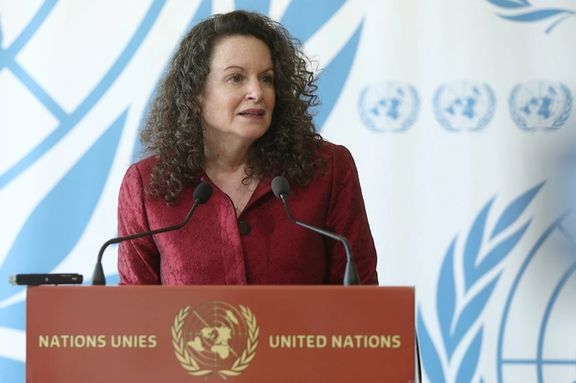
Also on Tuesday, US Ambassador to the UN Human Rights Council Michèle Taylor said appointing a country with such a “deplorable human rights record severely undermines the credibility and purpose of both the UN Human Rights Council and the Social Forum.”
In a statement, she also referred to the latest report by UN Special Rapporteur on Iran, Javaid Rehman, which he said exposes “the stark reality of widespread human rights abuses in Iran, including state-endorsed violence against women and girls, summary executions of peaceful protestors, and stifling of freedom of expression, suggesting possible crimes against humanity.”
Calling upon all UN Human Rights Council member and observer states to prioritize the credibility and integrity of the Council by making decisions that truly embody its principles and values, she called for reforms within the UN’s human rights system that ensures “countries that perpetrate serious human rights violations and abuses do not hold positions of leadership.”
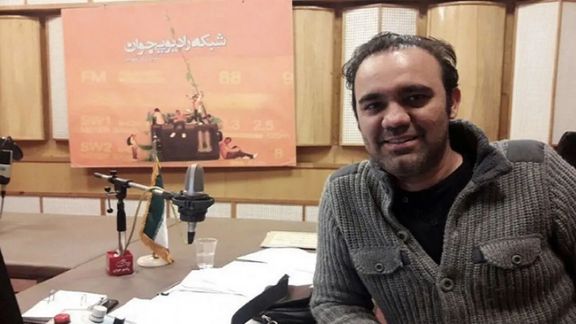
An Iranian journalist working for a Farsi website abroad says the regime has arrested her brother because of her media activities.
Shima Shahrabi, editor-in-chief of IranWire’s Persian-language website said Wednesday that her brother has been in custody for more than three weeks.
“Because of my activities, which are entirely related to journalism and human rights, my family in Iran is under immense pressure from the security establishment of the Islamic Republic,” she wrote in a tweet.
Earlier, social media reports said that Sajjad Shahrabi, a dubbing artist and radio DJ, was arrested on May 2, but his charges are unknown.
“Six agents from the Intelligence Ministry raided my parents' home. After beating the superintendent, they entered the residential unit and searched the apartment. They seized laptops, mobile phones, banking cards and part of my father's US dollars and jewelry from his personal safe,” added the IranWire journalist.
According to her, the agents assured her father that they would release Sajjad after questioning; however, the same afternoon, he reported he had been transferred to the notorious Evin Prison.
“It has been 22 days since he was arrested but the court has not announced any charge against him. They say that he is under a one-month arrest warrant and, since he objected to his temporary arrest, he must remain in detention until the judge upholds or vacates the warrant,” Shima Shahrabi said.
The Iranian regime has always tried to put pressure on Farsi-speaking journalists abroad with the aim of stopping their activities. They put pressure on their family members inside and ban the journalists from buying and selling properties.